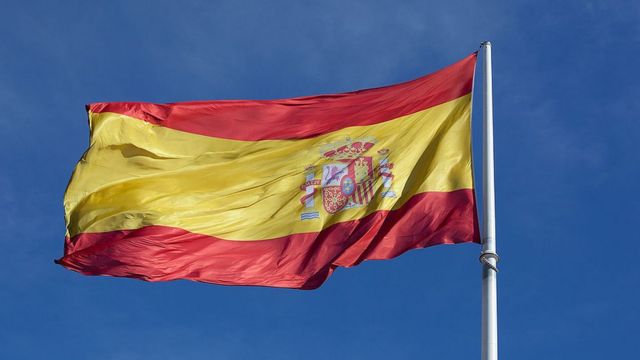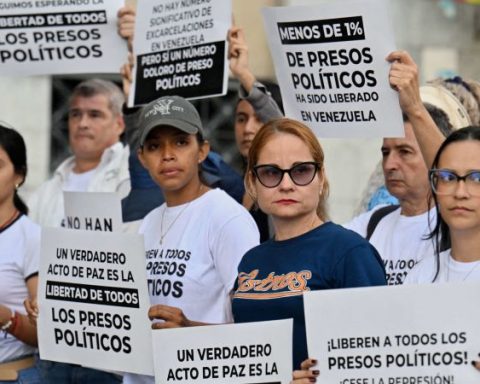In this context, Ricardo Scavone, Paraguayan ambassador to Spain, said that this European country has been very generous with migrants, since it requires labor to advance, which is why it has around 10 million foreigners, including Paraguayans.
“We calculate that there are about 120,000 compatriots in Spain, those who are regularized reach 86,000, and those who already have Spanish nationality are about 125,000. It is a country that has welcomed migrants, integrates them and now makes the rules for migratory regularization more flexible for foreigners who are here,” explained the diplomat in dialogue with ABC TV.
He pointed out that Paraguayan migration is mostly female, where two thirds are women and have been directed primarily to care in nursing homes, for example, nursing. There are also nationals in the southern part of Spain, who work in the area of agriculture, since there is labor for construction.
Regarding the new migratory regime, the ambassador indicated that what is being done is to facilitate, reduce the deadlines, the demands and thus make the regularization of migrants who are in Spain easier.
These are the four changes in the Immigration Law in Spain
1- Students
One of the main beneficiaries of the reform will be foreign students enrolled in Spanish centers. Until now, those who had a student visa to study, for example, a degree at a Spanish university, could not work to pay for their studies. The new regulations allow them to legally work up to 30 hours a week.
In addition, once they have finished their studies, they will be able to stay one more year without having to request an extension of their stay in Spain.
Almost one in four foreign undergraduate students in Spain come from Latin American and Caribbean countries, a proportion that rises to nearly 64% of master’s students and almost 53% of doctoral students.
“Before the reform, whoever had a study permit, if he worked, he did it irregularly and this did not make any sense,” explained Gemma Pinyol-Jiménez, director of migration policies at Instrategies, a consultancy specializing in mobility issues, migrations and diversity management.
The amendments to the law allow the stay authorization, with some specific criteria, to be converted into a work authorization. And this is not only positive for these people individually, “but also for that country, because it is a way of guaranteeing that those who have studied and have completed third-grade training -because this is designed for the highly qualified-, can access the Spanish labor market.
Spain wants that talent that has been trained in its universities to be able to stay, in addition to making its higher education centers more attractive and facilitating its internationalization.
2- Rooting by training
From now on, people who have stayed in Spain for a minimum period of two years will be able to obtain a 12-month residence permit if they undertake to carry out regulated training for employment, a figure for which the Spanish government It has been inspired by an existing model in Germany known as “duldung”.
“The idea is that people who are in an irregular situation can access the labor market by first undergoing training. That yes, in sectors in which it is determined that there is a need for labor”, Pinyol-Jiménez clarified.
Rooting by training is added to the two ways by which, until now, foreigners who were already in Spain could regularize their situation.
One is social roots, for which you must prove three years of residence and, in addition, that you have a job offer. This contract will no longer have a minimum duration of one year, as was requested until now, but it must comply with the minimum interprofessional salary.
The other is labor roots, in which it is necessary to demonstrate that there has been an employment relationship, even if the person had worked without a contract and was paid, therefore, in black.
“Many people arrive in a regular situation and then let their visa expire out of panic to try to enter the labor market. What is intended with the reform is to reduce this space in which people end up working irregularly, which in the end is a disaster for themselves, for the economy and for everyone”, interprets the consultant.
3- Hiring at origin
Hiring in the workers’ own countries of origin will also be made more flexible.
On the one hand, hiring for seasonal workers is improved. From now on, these workers who go to Spain to participate, for example, in agricultural campaigns, will be able to access a 4-year authorization in which they will be able to work up to 9 months per year, with the obligation to return to their countries after each period.
If these conditions are met, as a “prize”, these workers may apply for a residence and work permit for two years, renewable.
But in addition, the reform wants to improve what is known as the Catalog of Occupations with Difficult Coverage, that is, the list of professions for which employers have difficulty finding personnel and that allow them to hire professionals at source.
In addition to trainers, according to the list in Spain only personnel from merchant ships, trainers and professional athletes are needed.
The reform is going to take a more realistic picture of the labor market, which will be updated every three months.
4- Family reunification
One of the great novelties of the reform, and one that will mean a great improvement for the life of many foreign families in Spain, is the one that concerns family reunification.
Family members, upon receiving the residence permit, will also receive the authorization to work for themselves and others. “Until now, these people received a residence permit, but they had to wait to get a work permit, while with the changes, when family reunification is renewed, work authorization will be acquired,” the consultant specifies.
“The system is so crazy that it condemned people to a bad life when they could work,” a dysfunction, Pinyol-Jiménez denounces, related to the Catalog of Occupations with Difficult Coverage. They tried to maintain and respect the reality of the Spanish labor market, but it was done with an instrument that made an unrealistic x-ray of reality”.
Family reunification requirements are also made more flexible when they affect minors, people with disabilities or in a situation of vulnerability.
In addition to these four points, the amendments to the Immigration Law also rationalize the requirements for self-employed workers from third countries, and create a Unit for the Processing of Immigration Files, a kind of “single window” to speed up and facilitate formalities.
“The border obsession has eaten up all public debate on immigration issues. This is the first time in years that we are talking about reforms that have nothing to do with borders.”

















